One of the dictionary definitions of legacy is 'the long-lasting impact of particular events, actions, etc. that took place in the past'.

It's fair to say that the Socceroos left the nation with a huge legacy a decade ago when they triumphed in the Asian Cup.
The long-lasting impacts of that victory over South Korea in 2015 are still being felt ten years on, both on and off the field.
Most obviously, there is a surfeit of memories.
Those in the crowd, swept up in the emotion of the tournament win that night in Sydney, will never forget the drama and tension of the extra-time denouement and the sheer relief when the final whistle went. The image of joyous coach Ange Postecoglou, yellow tie loosened, smile beaming all over his face, waving his arms aloft in salutation, is still vivid in the minds of many.
It is a feel-good moment that has lasted for 10 years, certainly in the wave of goodwill that the Australian public has felt for the Socceroos ever since, as they continue to turn out in big numbers to support the team, irrespective of who is coach, who is playing and no matter who the opposition is.
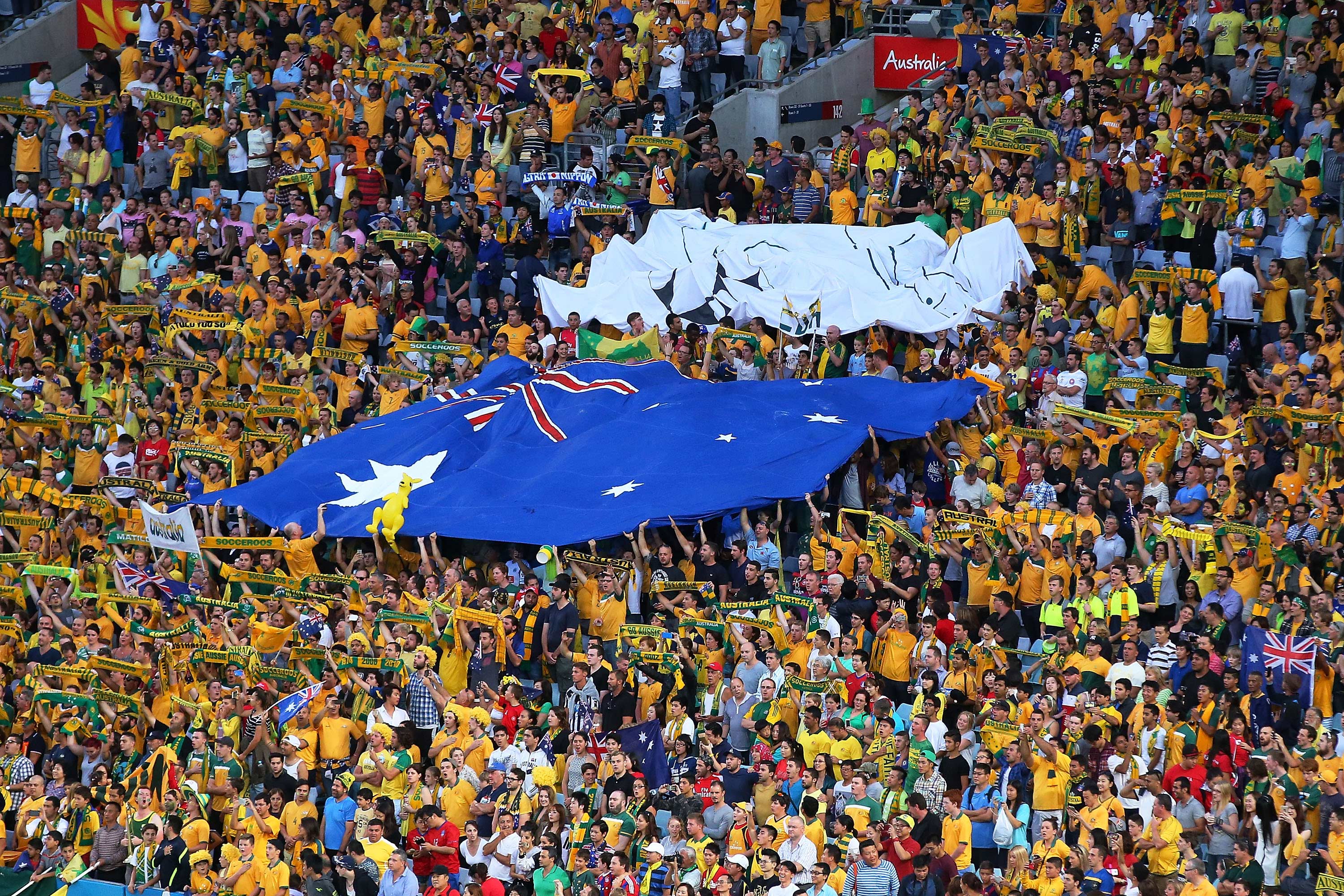
For the coaching staff and players, the memories will never fade: the burst of relief they all felt when James Troisi scored that close-range winner after Tomi Juric's excellent work down the right flank and the confidence the win gave them as they moved through their careers. For some, that would mean participation in future World Cups and Asian Cups and careers overseas, while, for others, their future would be as major figures in the domestic game.
For Football Australia, the game's governing body, and the tournament's local organising committee, there was also a long-lasting legacy.
The expertise and experience they gained in organising the competition and their consequent understanding of logistics and cultural sensitivities was invaluable, and put them in an excellent position to bid (successfully) to host future tournaments like the FIFA Women’s World Cup, which Australia did in 2023.
That Asian Cup win remains a high point for the men's team, and the immediate aftermath cast the whole game in a warm glow.
A few months later, Melbourne Victory defeated Sydney FC 3-0 in a packed out A-League Grand Final at AAMI Park; the game was on a roll and the prospects looked great.
And while the game may have struggled at times at club level since, the same can't be said of the national teams which retain a high degree of public support and affection, even more so with the rise of the Matildas.
Ange Postecoglou took the bulk of his Asian Cup-winning squad to qualification for the 2018 FIFA Men’s World Cup before quitting and handing over to Bert van Marwijk as temporary coach for that tournament. That qualification marked the fourth time in succession that Australia had made it to the biggest sporting show on earth, so the legacy was being developed.
But that World Cup also exposed the truth that the game never stands still. Many of that group were ageing and for incoming coach Graham Arnold, building on the legacy of the triumph meant revamping the squad.
"I knew we would have to regenerate and rebuild if we were to continue making progress, so I took on the running of the Olympic team as well so I could see at first hand the younger players coming through who could come in and do the job," Arnold, who resigned late last year as Socceroos coach after six years in post, reflected.
"I went and sourced players playing in Europe who also had Australian connections and could qualify for us and help us rebuild, like Martin Boyle, Alessandro Circati and Harry Souttar. I had to decide whether many of that 2015 squad would be able to qualify us for the 2022 World Cup and perform when we got there."
Arnold says that initially it was a quick fix, but taking the Olympic team gave him a first-hand view of who might be suitable for the senior side.
That went well as the Olyroos did qualify for Tokyo 2020 and pulled off a huge shock when they got there, defeating powerhouse Argentina in the group phase.
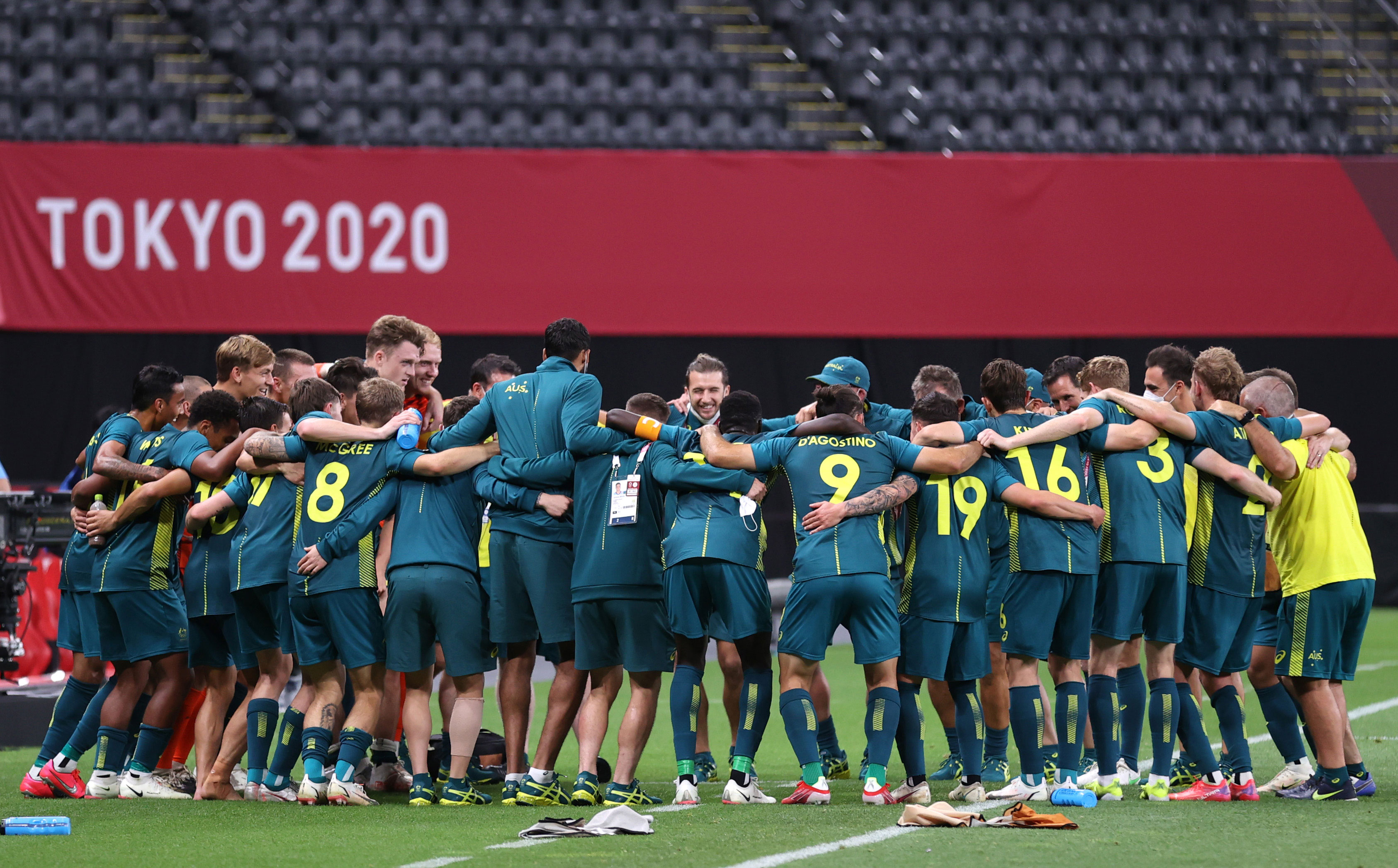
"We qualified for the Olympics for the first time since 2008 and I had 13-14 players from that squad that went on to be involved in my final camp before I resigned last year.
"I feel that if I had continued with the older players we probably would have struggled to qualify for the World Cup in 2022 and I think it was one of the best results we ever got in Australian football history, the 2-0 win over Argentina. 12 of that Olympic team from Argentina won the World Cup in Qatar less than two years later."
Arnold's faith in the regenerative process helped him build on Australia's Asian Cup legacy still further in that same tournament in Qatar, when the Socceroos achieved their greatest-ever performance in the World Cup. It was touch and go on the road to the Middle East, Australia having qualified under Arnold via a dramatic penalty shootout win over Peru in the intercontinental play-off, but the heroics of goalkeeper Andrew Redmayne ensured that this country would qualify for a fifth time in succession, a record few other nations can match.
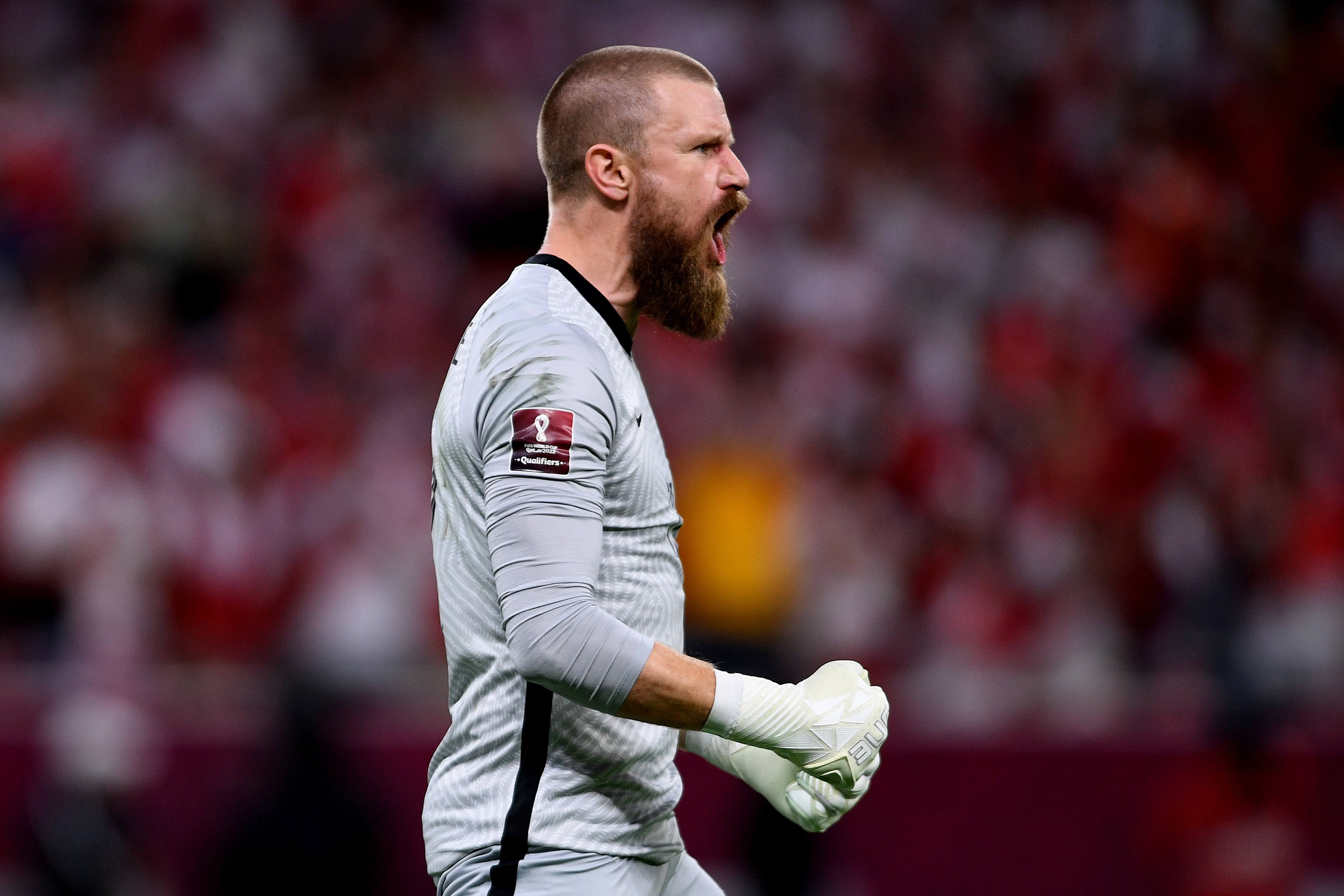
The Socceroos took six points from their three group games with wins over Denmark and Tunisia, and gave the eventual winners Argentina an almighty fright losing only 2-1 in the round of 16.
"It was a fantastic achievement by that group of players considering the quality of the opposition and the difficulties we had to face in the build-up. Don't forget that was during the times of Covid, and it was very difficult in Australia at that time. It is hard enough with the distance the players have to travel to tournaments, but the Covid restrictions make it even harder."
Australia finished that tournament ranked 27 in the FIFA standings, up an impressive 11 places: in contrast, after winning the Asian Cup in 2015 Australia was ranked only 63rd in the world, so the record was certainly being developed there.
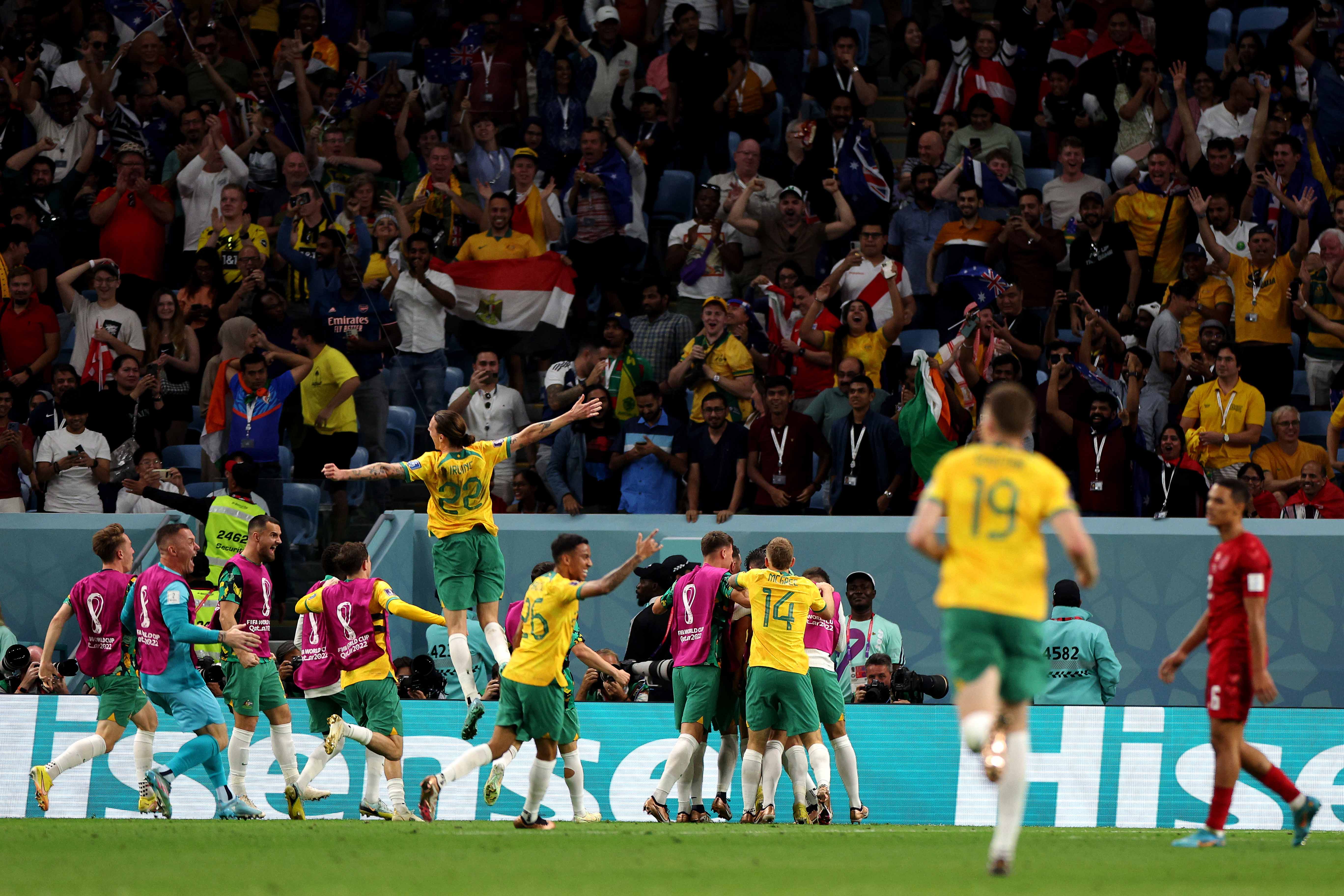
James Johnson (CEO) has been in charge at Football Australia for five years, half of the decade that has elapsed since the Asian Cup triumph.
He believes that the legacy for the game has grown considerably, both on and off the field since that victory.
"The Socceroos’ victory in the 2015 AFC Asian Cup was a transformative moment for Australian football. It wasn’t just about lifting the trophy; it was about uniting the nation and solidifying our place in the Asian football family.
"The tournament set new benchmarks for record attendances and broadcast audiences, underscoring the game’s capacity to capture the hearts of Australians. The timing of this success, on the eve of community participation seasons across the country, played a key role in driving unprecedented growth in grassroots football.
"The legacy of that triumph continues to shape the Socceroos’ identity and reinforces the importance of aiming high both on and off the pitch," he says.
In 2015, Football Australia had a dual role. It ran the Socceroos and it was responsible for the delivery of the tournament itself, so from the organisation's perspective the impact of 2015 has to be judged in these two lights.
Johnson says that both have prospered and he is confident they will continue to do so.
"On the Socceroos side, you have seen the team qualify for the 2018 and 2022 World Cups. In the latter, it went on to have the best run that a men’s national team has ever had in a World Cup, so that was a tremendous legacy and one we hope to build on by qualifying for the next World Cup.
"On the competition organising side, it was a good stepping stone to hosting the Women’s World Cup in 2023.
"In terms of scale that was a lot bigger and it was ultimately very successful, and I think that experience of the successful delivery of the 2015 Asian Cup positioned Australia very well, certainly during the bid process to host that 2023 WWC, and then in delivering it eight years later."
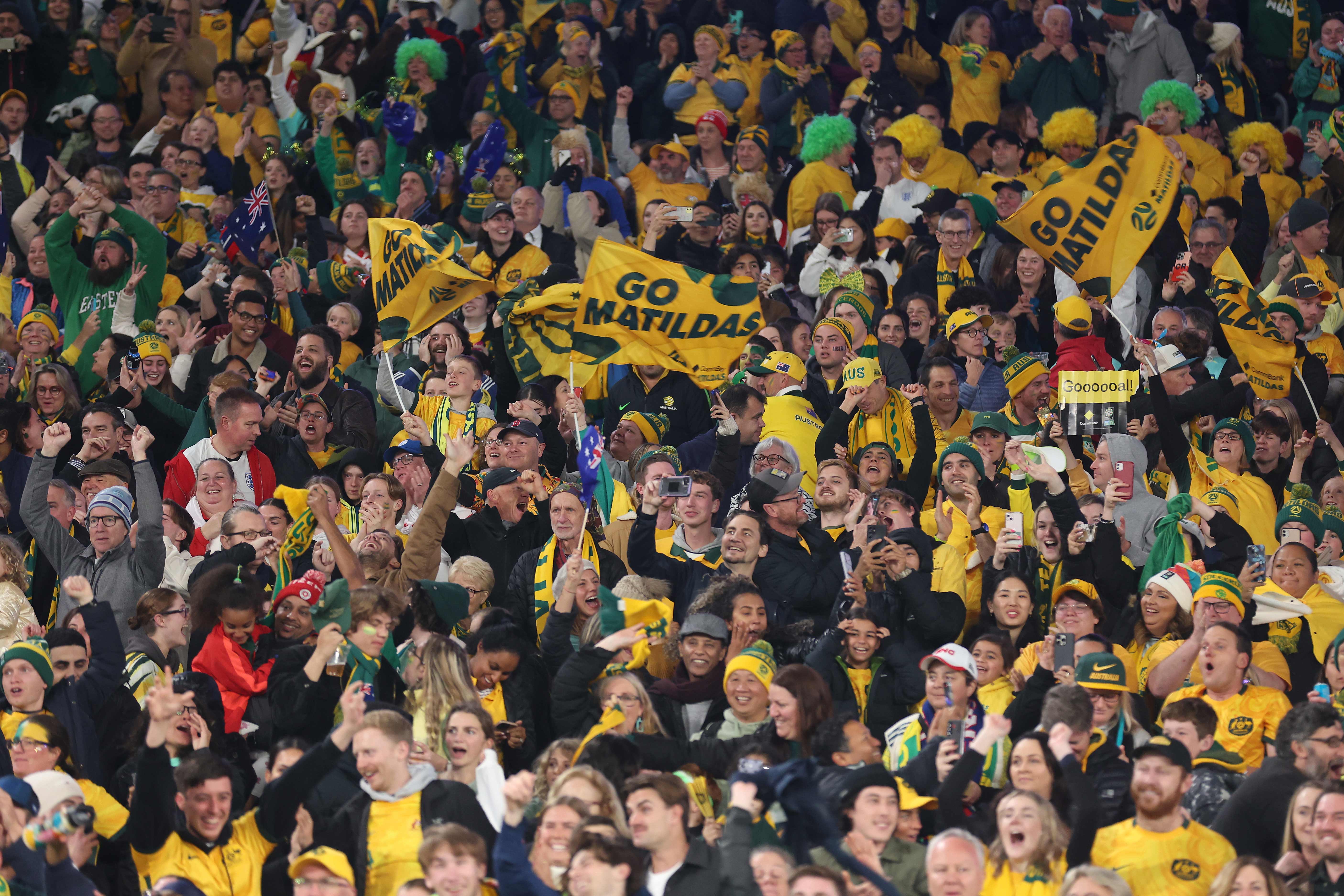
Johnson suggests that there is still a very strong halo effect from that 2023 competition, itself a beneficiary of the 2015 hosting.
"If you look at nations that host major tournaments there is a pattern and they host regular competitions. The more you host and the more you deliver good competitions, the more you seem to get.
"We will co-host an amazing Women's Asian Cup in 2026 and by the time we get there, it will be 11 years where we have hosted three very prominent global football competitions."
Doing well as a host nation - as both the Socceroos, in winning the 2015 Asian Cup, and the Matildas, in reaching the World Cup semi-finals in 2023 - provides a massive fillip for the whole game, says Johnson, as not just fans but broadcasters, marketers and the corporate sector become much more aware of the game and the opportunities it offers.
"The performance of a national team in any major competition is very important for brand and legacy, but it is even more important when you are the host.
"We certainly saw that during the Women's World Cup, when the Matildas really were the driving force behind the success of that competition. I think the same can be said of the 2015 Asian Cup because Australia went all the way.
"We are planning to do that for the Women's Asian Cup in 2026. Success on the pitch and in hosting, I think they are both linked. If you can get them both spinning hard together you create a flywheel effect which is good for the broader game.
"And that means there is an opportunity for the whole game to leverage it. We saw that from the Women's World Cup. Take the Women’s A-League the season after, the membership skyrocketed, the numbers grew, we saw an uplift at grassroots level and in awareness of the league."
Peter Filopoulos has spent the decade since the Asian Cup win in club football, as CEO of Perth Glory, at state level, as CEO of Football Victoria, and is now the Head of Corporate Affairs, Brands and Marketing with Football Australia.
In those various capacities, he has seen the impact and legacy of the Asian Cup win, and believes it is still having an effect.
"The 2015 AFC Asian Cup victory was a defining moment in Australian football history," he says.
"It united the nation, reaffirmed the strength of our game, and demonstrated the potential for Australian teams to succeed on the world stage.
"The record attendances and broadcast audiences throughout the tournament were a testament to the passion Australians have for football, and the timing of the triumph was pivotal, coinciding with the start of grassroots participation seasons.
"It sparked a wave of interest and growth in community football that has only strengthened the game’s foundation in this country.
"Having worked across various facets of football since then, I’ve seen first-hand the enduring impact of that achievement, which remains a benchmark of excellence for the Socceroos and the sport as a whole."
*MICHAEL LYNCH a former chief soccer writer for the Melbourne Age, covered the 2015 Asian Cup for both The Age and the Sydney Morning Herald.
